We all know that we need a certain amount of fruits with low carbs and veg every day to keep us healthy.
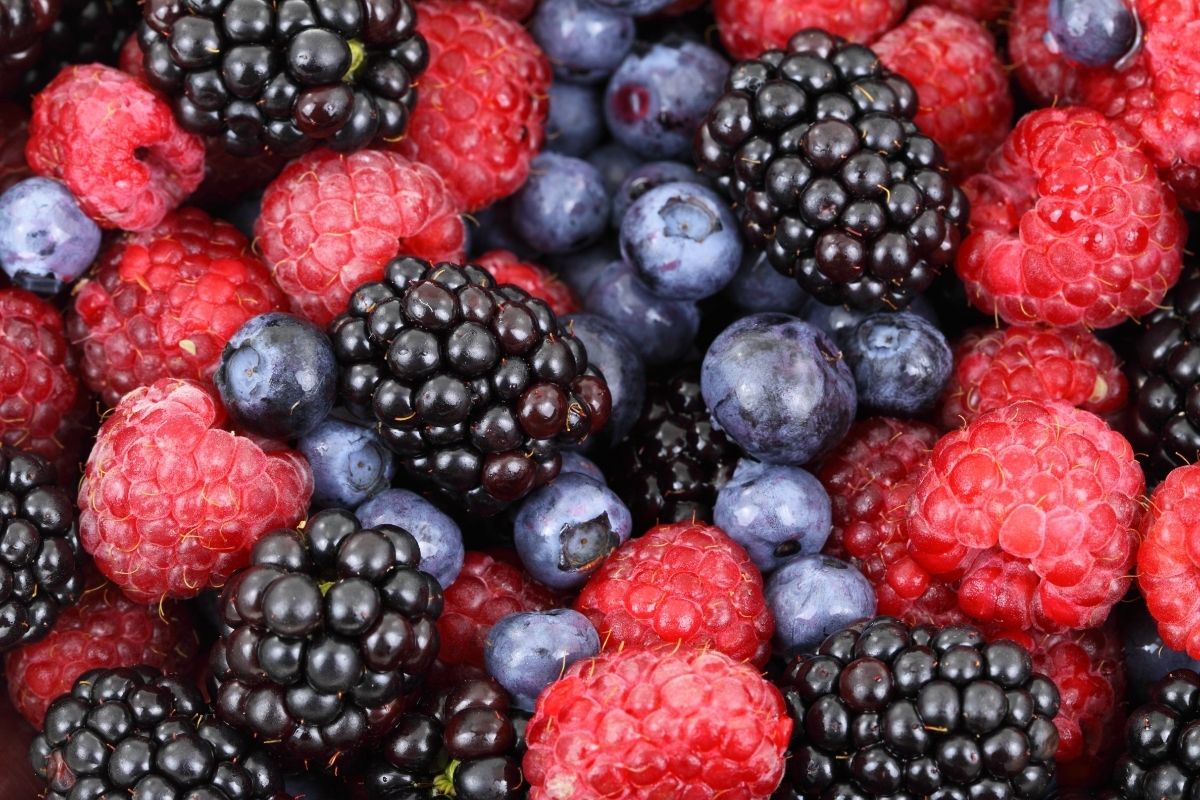
However, getting a sufficient amount can be pretty challenging for many of us.
Fruits and vegetables contain nutrients that support the everyday functions of our bodies with some foods decreasing the risk of serious illnesses and diseases.
Moreover, many fruits are relatively low in calories making them ideal snacks for those looking to shed a few pounds.
That being said, some fruits contain high volumes of carbohydrates, so you need to understand what fruits have low levels of carbs before adding them to a weight-watching diet.
While fruits contain carbohydrates, it doesn’t mean you should ignore them. The amounts of carbohydrates in fruits vary significantly.
By finding out which fruits are low in carbs, you can then choose a selection that will give you health benefits with the right amount of carbs.
Continue reading as we guide you through some low-carb fruits that you can add to your diet today.
1. Avocados
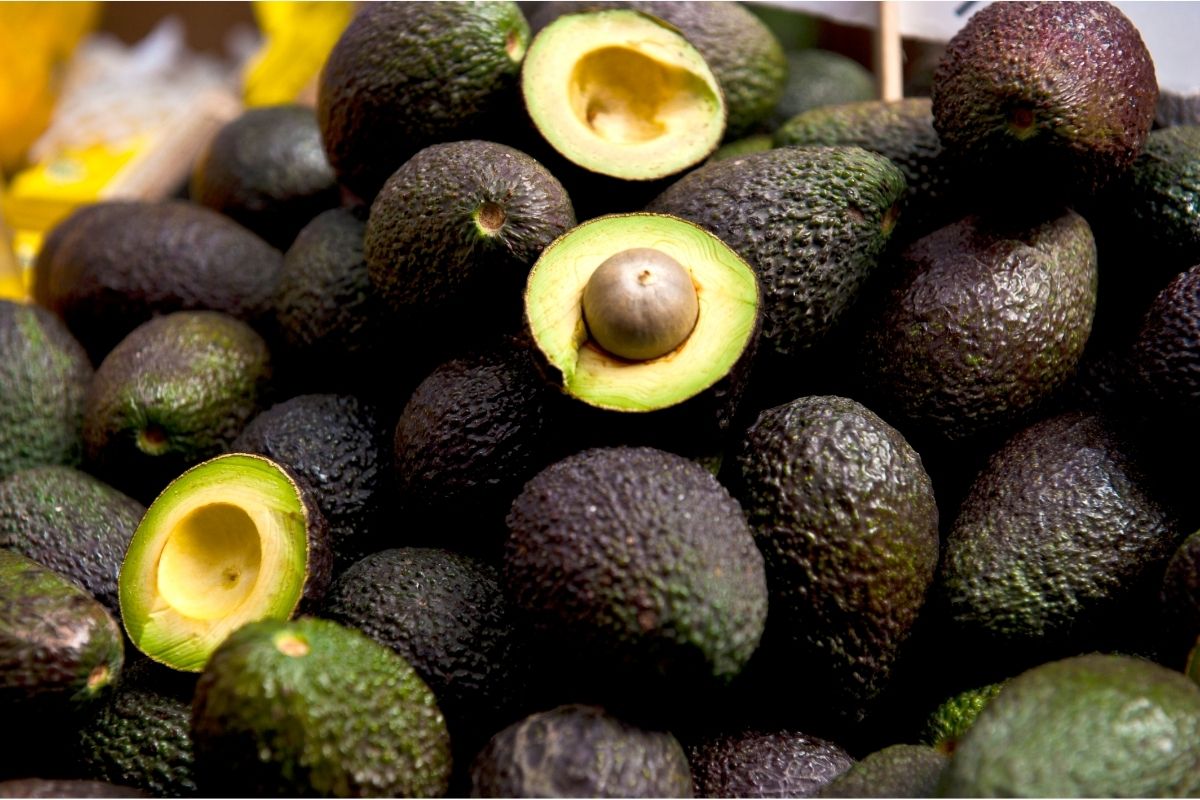
Considered superfood by many, avocados are relatively low in carbohydrate content. And, yes, they are fruit despite many claims that they are a vegetable.
For every 100 grams of avocado, you will get around 8.53 grams of carbs in return. As well as this, you will consume 6.7 grams of fiber.
Overall, you will only consume about 1.83 grams of net carbohydrates. Avocados also contain healthy monounsaturated fats which are beneficial for your heart’s health.
We recommend adding some avocado to your salads or wraps for delicious snacks!
2. Berries
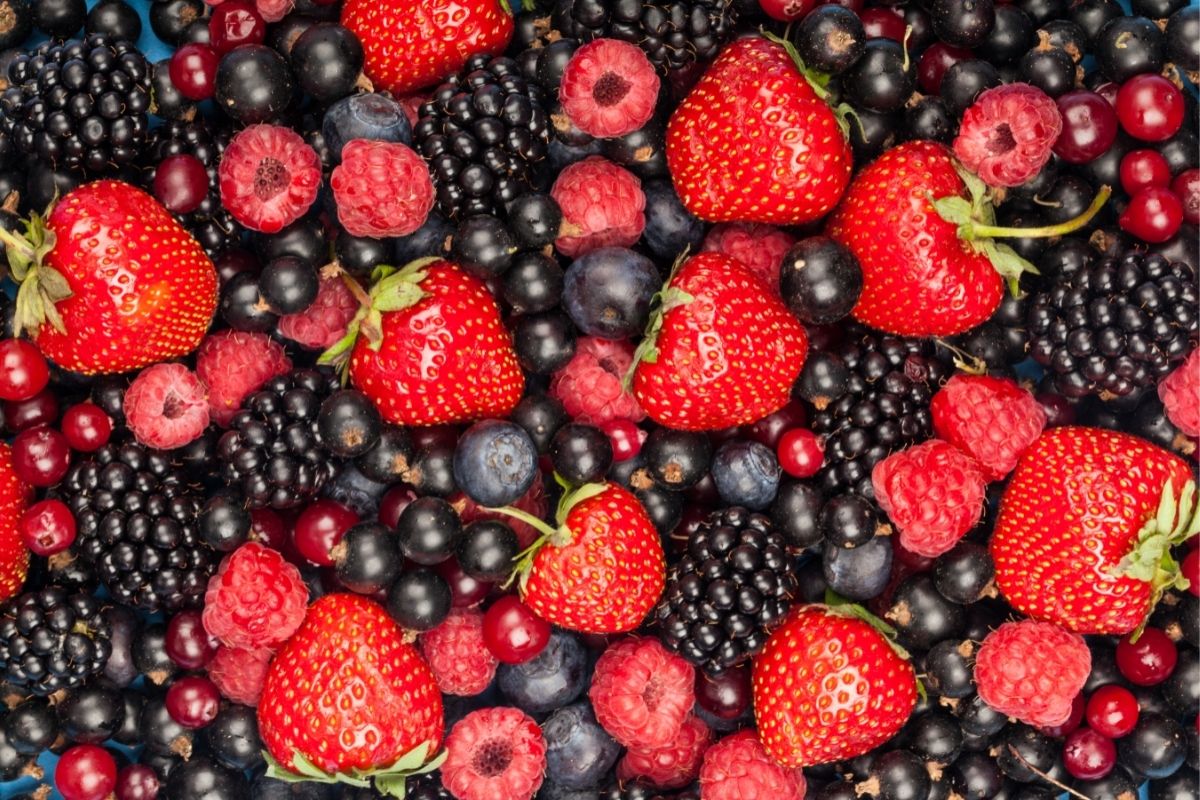
If you are watching your weight and keeping an eye on your carbohydrate intake, then berries should become a part of your diet.
Out of all berries, strawberries tend to contain the fewest amount of carbs. On the other end of the scale, blackberries hold the fewest in terms of net carbohydrates.
One hundred grams of strawberries contains around 7.68 grams of carbohydrates along with 2 grams of fiber. This equates to a net of 5.68 grams of carbs.
As for 100 grams of blackberries, these contain 9.61 grams of carbohydrates with 5.3 grams of fiber. This yields a net of around 4.31 grams.
You should also include raspberries in your diet as these have a net of 5.44 grams of carbohydrates for each 100-gram serving.
Berries are also great sources of many antioxidants nutrients such as potassium and vitamin C.
3. Watermelon
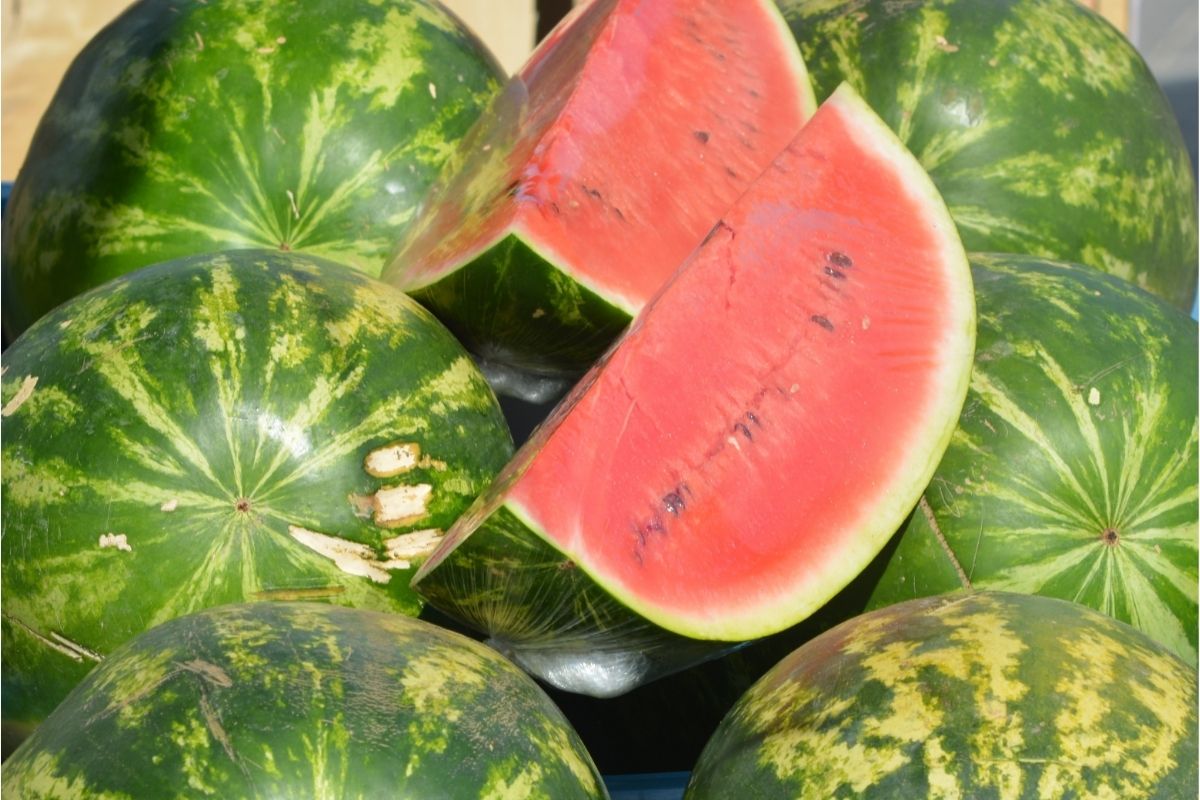
The perfect summer fruit. On top of being the go-to fruits when you need some refreshment during those hot, sunny, summer days, watermelons score pretty low in terms of carbohydrate content.
In 100 grams of this fruit, there are approximately 7.55 grams of carbohydrates. The fact that watermelon is low in fiber also means most of these carbs are absorbed.
Moreover, this fruit has a very high water content (hence the name) and is high in vitamin A.
Therefore, you will feel fuller and only consume a few calories (around 30 calories for 100 grams of watermelon).
4. Cantaloupe
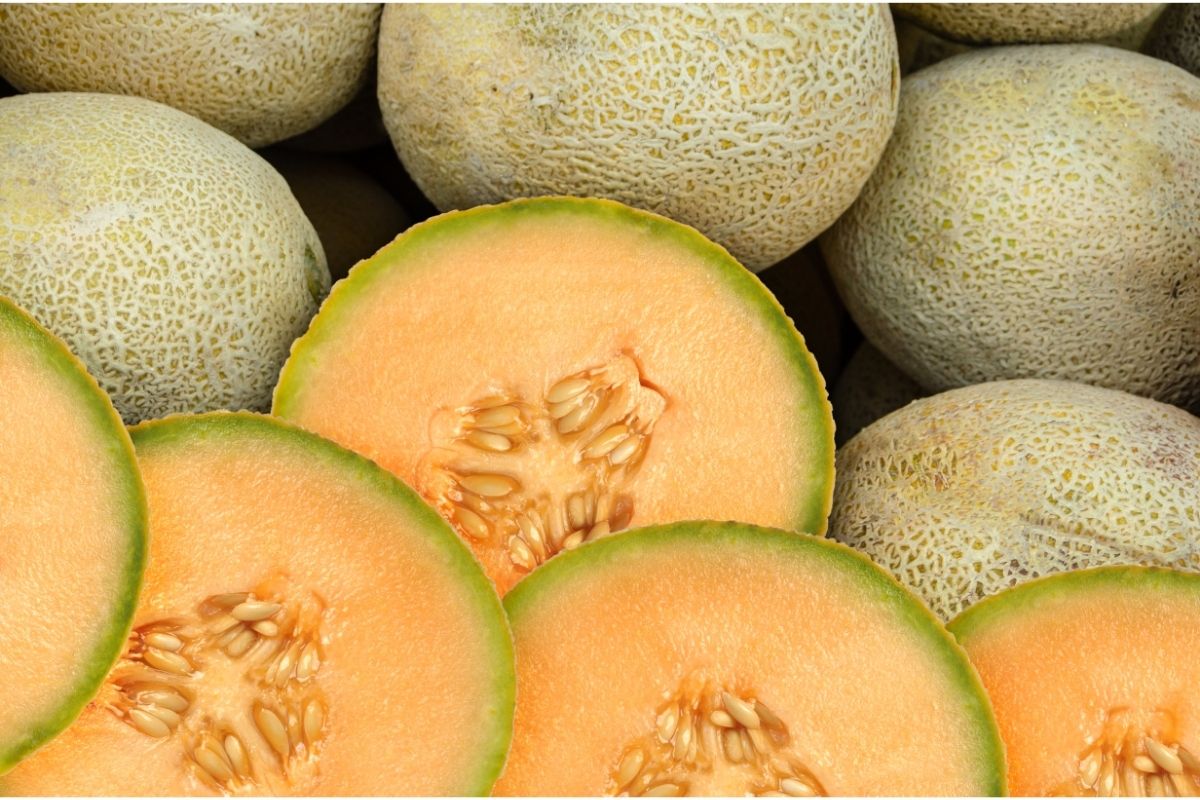
Cantaloupes have become more popular over recent decades thanks to their refreshing taste.
This orange-colored melon is perfect for any hot day and is perfect for carb watchers with just 8.16 grams per 100 grams of fruit.
With around 0.9 grams of fiber per 100 grams, cantaloupes net just 7.26 grams of carbohydrates altogether.
We recommend enjoying these low-fructose fruits with a tuna salad for a healthy, balanced meal.
5. Plum
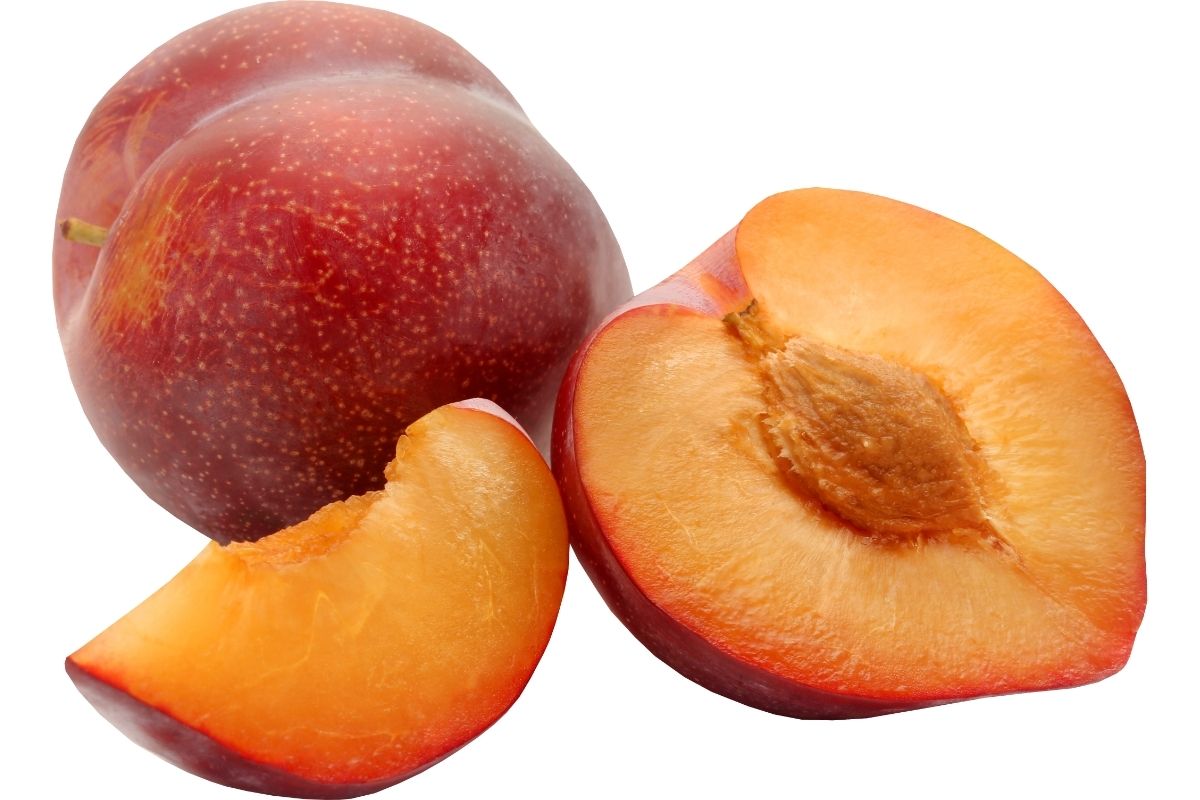
This delicate fruit gives you so much refreshment when biting in. Even better, just one medium-sized plum contains only 7 grams of carbohydrates.
Plums are a versatile fruit as they can be added to salads, smoothies, and yogurts.
These may be petite fruits, but they are certainly mighty with one medium plum also containing 100 milligrams of potassium which can help limit the risk of high blood pressure and strokes.
6. Peaches
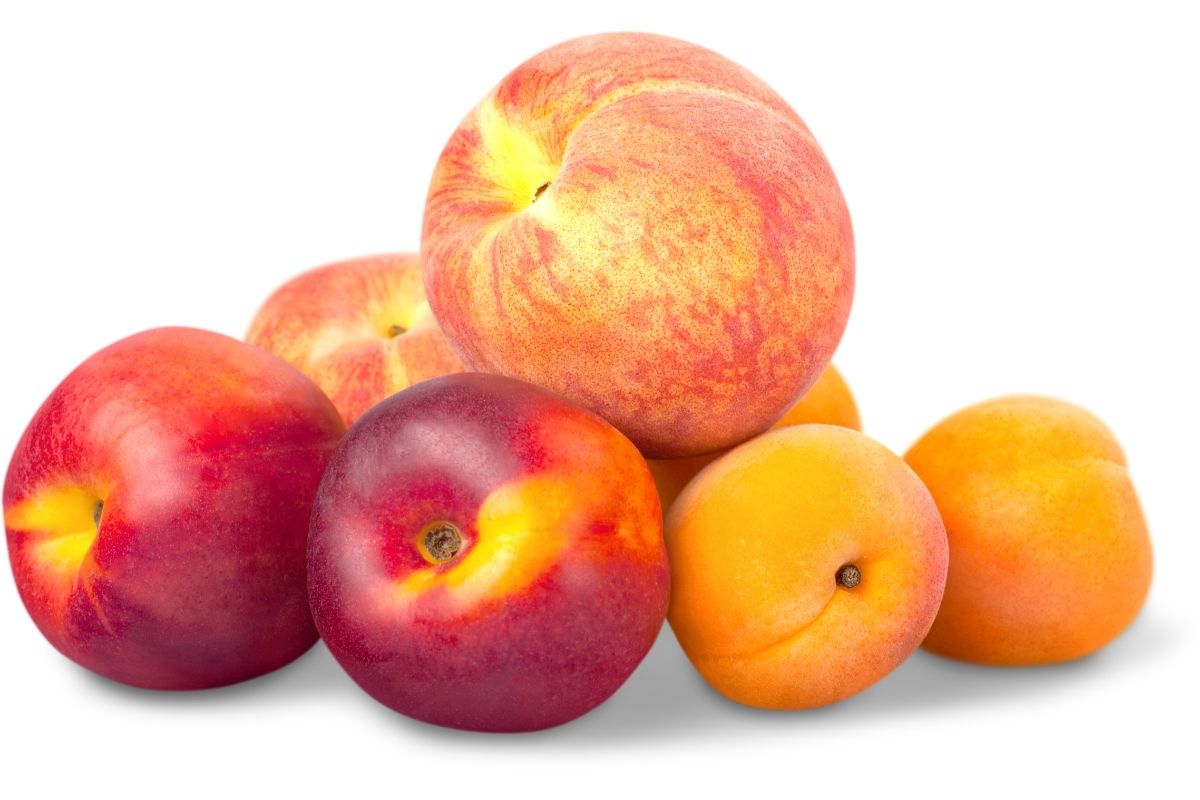
Sweet and juicy. There’s no other way to describe these popular fruits.
On top of being refreshing and tasty, peaches are also very low in carbohydrates.
A 100-gram serving of this fruit will contain just 9.54 grams of carbohydrates with around 1.5 grams of fiber. This equates to a net of just 8.04 grams of carbs.
If you want to add a little more flavor to the mix, serve some peaches with cottage cheese for a low-carb, tasty snack.
7. Clementine
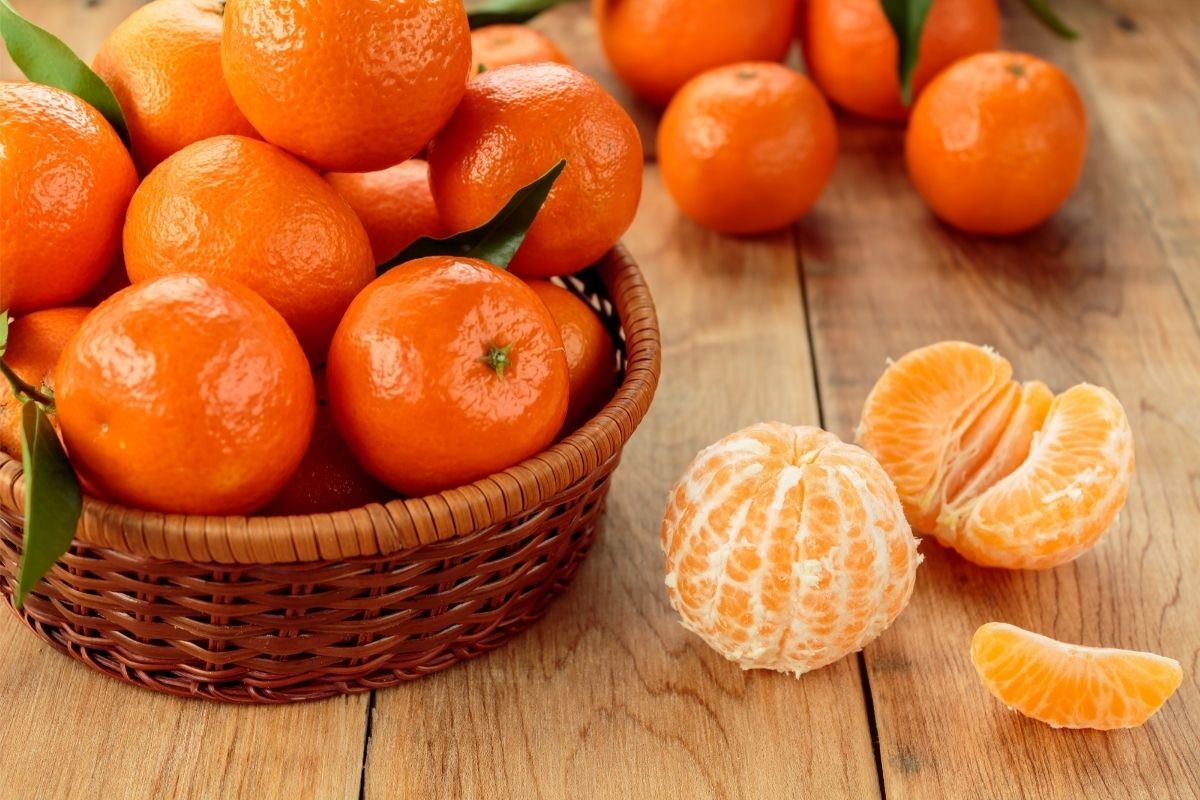
Just one medium-sized clementine (around 75 grams) contains just 8 grams of carbohydrates.
Moreover, this very sweet fruit is very rich in vitamin C which can help in the growth, development, and repair of your body’s tissues.
Clementines are also a great source of calcium which is vital for our bone health.
Potassium is also abundant, helping lower blood pressure in individuals.
8. Kiwi
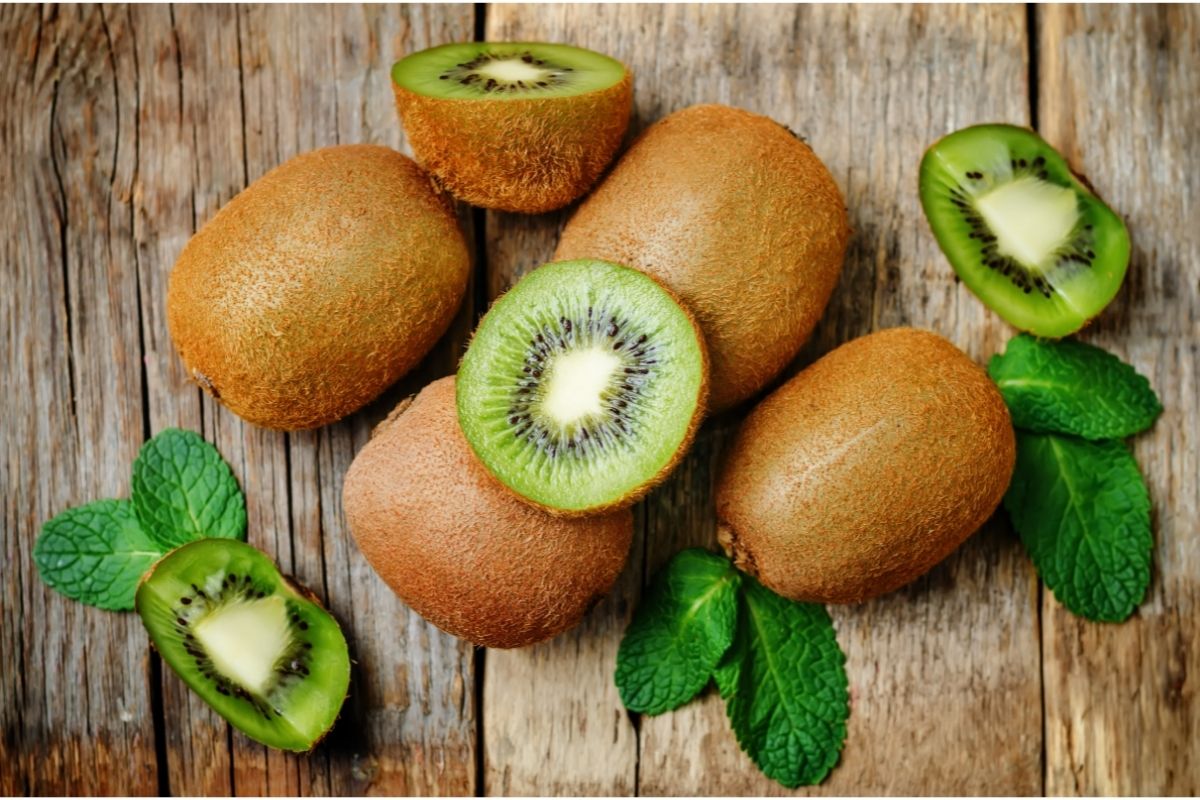
Kiwi fruits are known for their slightly acidic flavor and are often described as a little tart or tangy.
When it comes to carbohydrates, one skinless medium-sized kiwi, weighing around 70 grams, will generally contain about 8 grams of carbohydrates. With the skin on, these carbohydrate levels increase to about 11 grams.
Rather surprisingly, kiwis also contain about twice the amount of vitamin C that is found in oranges.
As well as this, kiwifruits are a great source of fiber and can help lower cholesterol and regulate healthy blood sugar levels.
9. Cherries
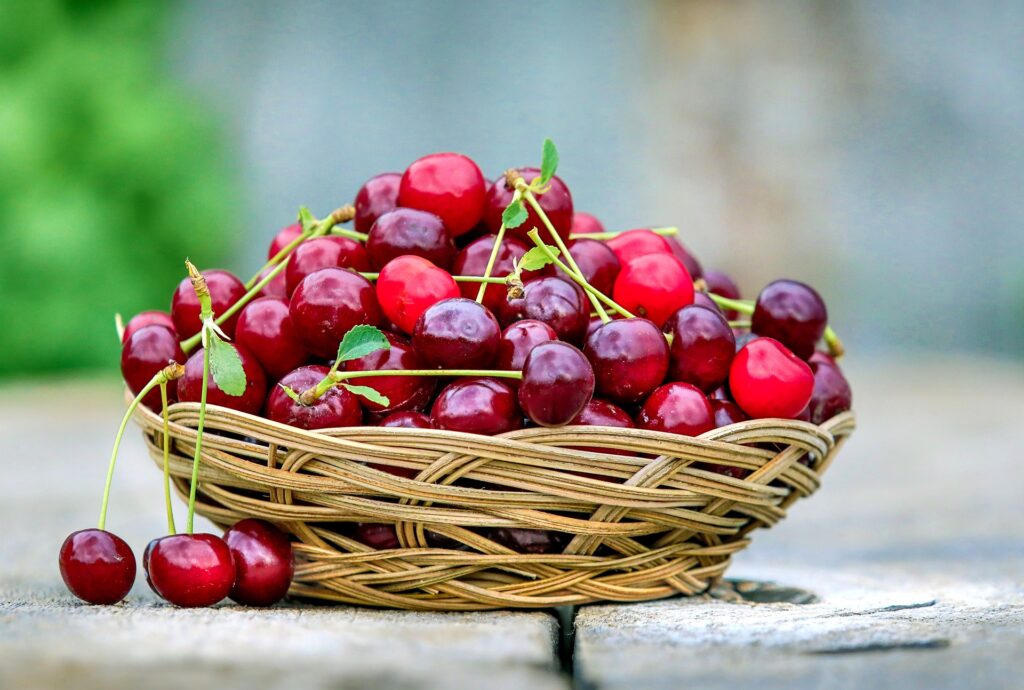
A few cherries will not see your carbohydrate intake shoot up. That being said, it can be easy to go overboard with cherries.
A handful can quickly become a whole packet. This is why you should be careful when tucking into these tasty treats as they can affect your blood sugar.
If you have half a cup of cherries (around 12 cherries or 75 grams worth), there will be approximately 8 grams of carbohydrates.
But, if you eat 1 cup (0.24 l) of sweet, raw cherries, you will be consuming 23 grams of total carbs and 20 grams of net carbs.
So, start counting those cherries!
10. Honeydew
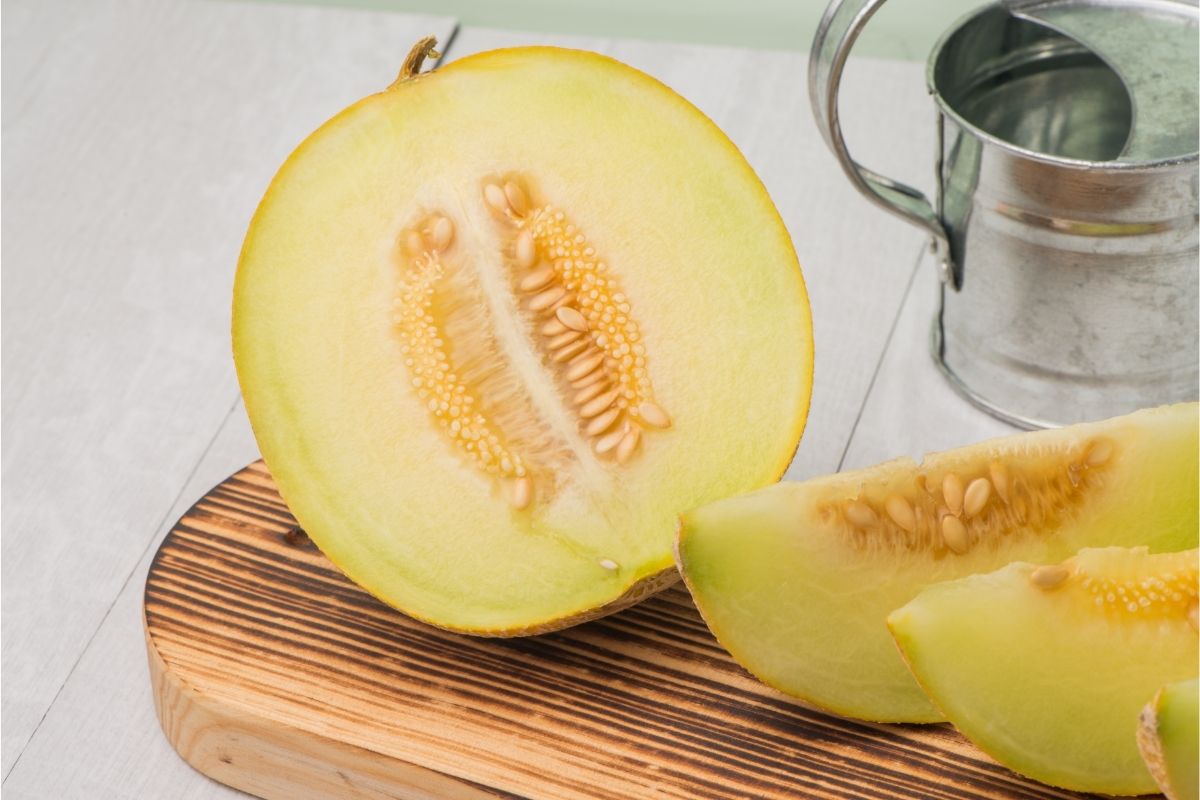
Next up we have the honeydew fruit, a type of melon.
For every 100 grams of honeydew, you get 9.09 grams of carbohydrates.
Although not as low as some other fruits, honeydew is also an excellent source of vitamin C. Moreover, this fruit is rich in potassium.
This is an electrolyte that can help maintain healthy blood pressure, encourage a healthier metabolism, and balance the levels of acid in the body.
Yep, honeydew is another super fruit!
11. Oranges
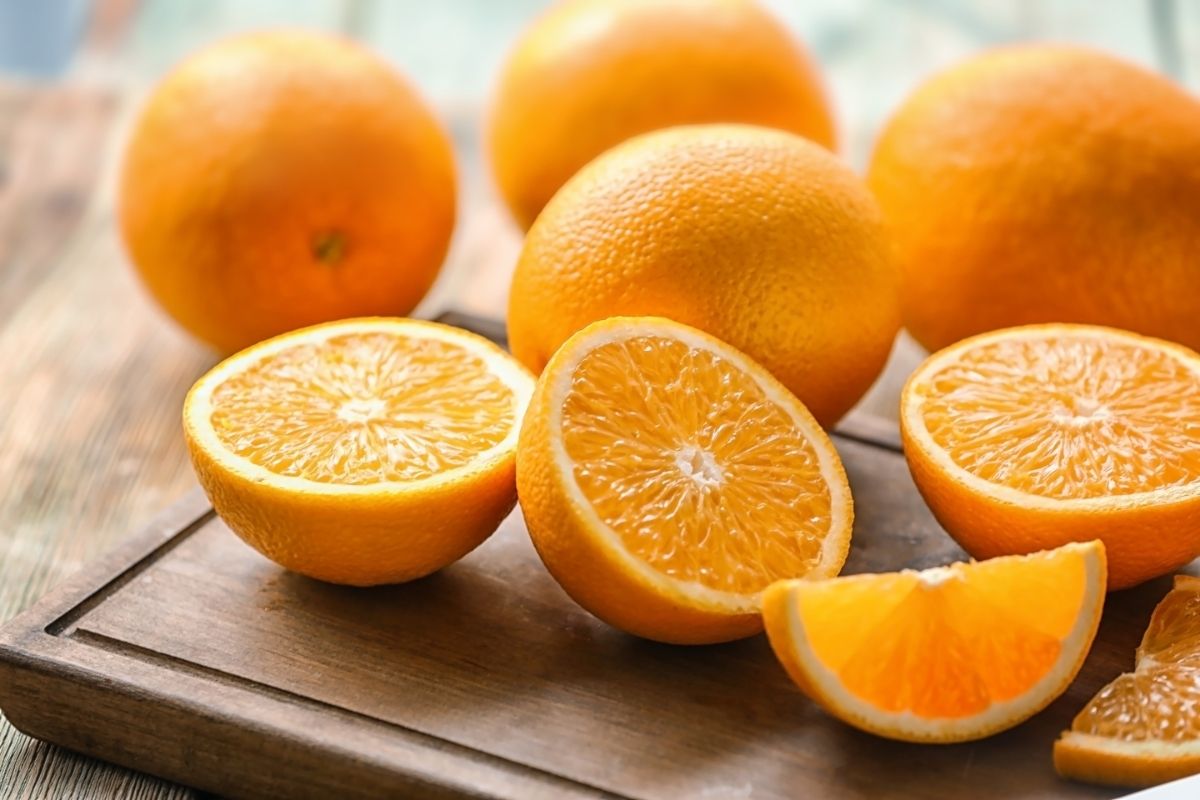
If you’re on a low-carb diet, oranges are a great fruit to include.
A small orange tends to contain around 9 grams of carbohydrates and, although this is somewhat higher than some other fruits on the list, oranges are very healthy.
These ball-shaped fruits are exceptional sources of potassium which can help lower blood pressure.
By increasing your intake of foods high in potassium, the effects on your blood sugar levels could be as beneficial as taking potassium supplements.
And, of course, oranges pack a lot of vitamin C, the immune-boosting nutrient.
A small orange has about 174 mg of potassium and 51 mg of vitamin C. As for a medium orange, you would be looking at around 15 grams of carbohydrates and 62 calories.
12. Olives
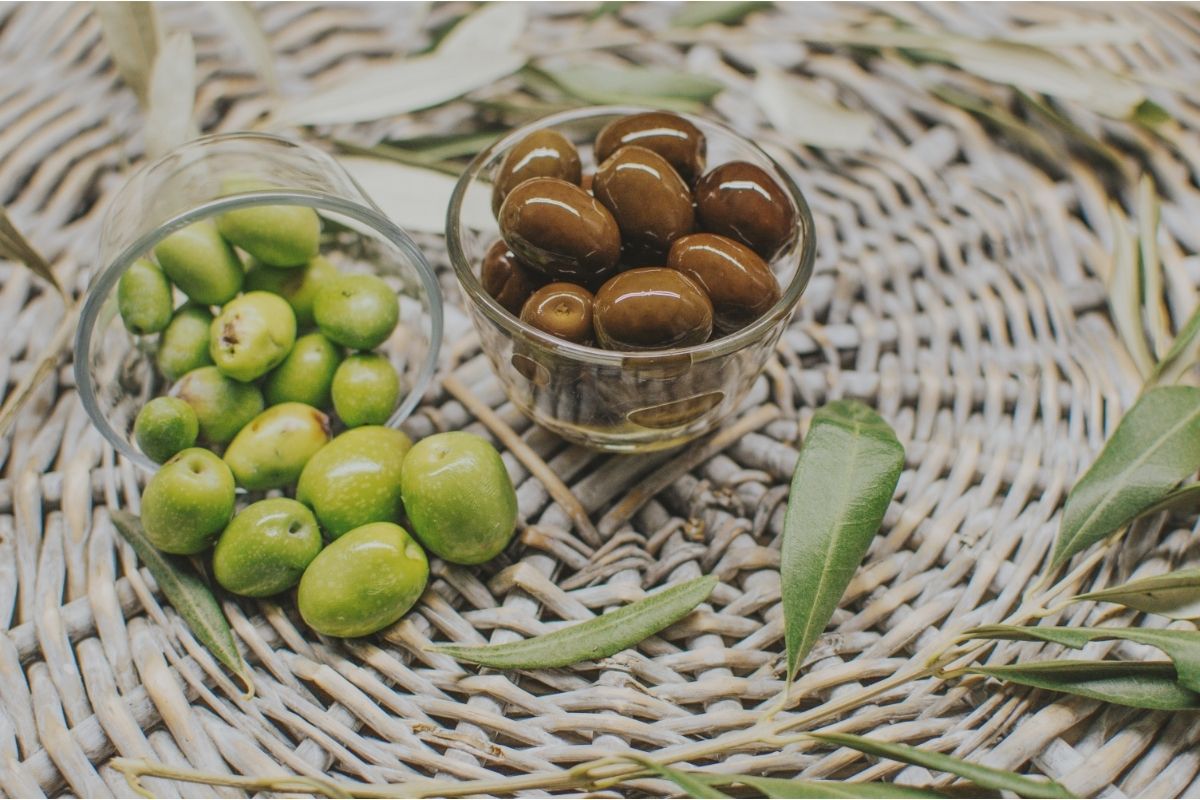
“Wait, what? Olives are fruits?”
Yep, that is correct!
They are also a great source of unsaturated fats, iron, and vitamin E.
The healthy unsaturated fats found in olives such as monounsaturated and polyunsaturated fats are capable of improving heart health and lowering the risk of type 2 diabetes.
When we consider their carbohydrate volume, a cup of olives will usually offer around 4.5 grams of net carbs alongside 1.9 grams of fatty acids, 2.4 mg of vitamin E, and 4.9 mg of iron.
Be careful with olives, however, as they are often cured so high in salt. Therefore, keep your portion sizes pretty low.
13. Pineapple
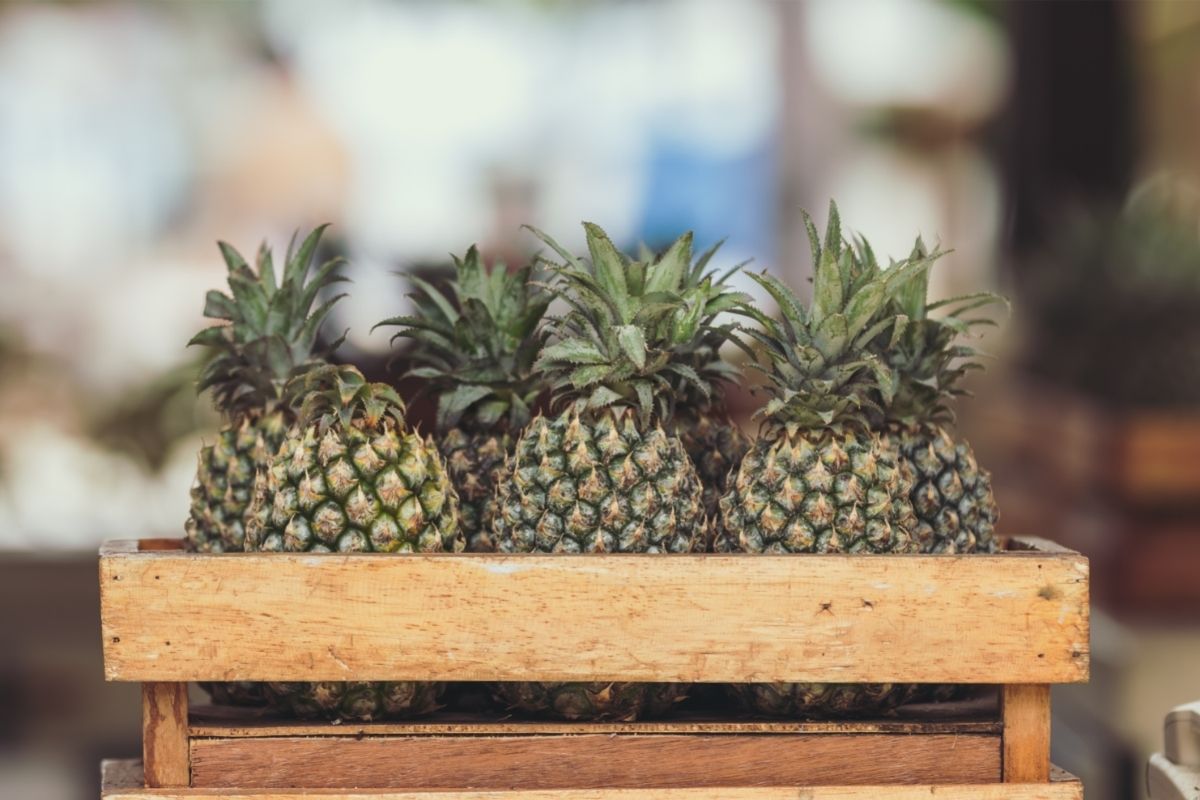
As we near the end of our list, some of these fruits are a little higher in carbs than some may like.
Nevertheless, these still contain low amounts compared to other fruits that didn’t make our list. Take the flamboyant pineapple, for instance. One hundred grams of pineapple consists of around 11 grams of carbs.
If you want to find a food that can offer you manganese, look no further than pineapples. This essential mineral can help in the health of your nervous system, blood sugar, hormones, and even have an effect on how your body absorbs certain amounts of calcium.
14. Nectarine
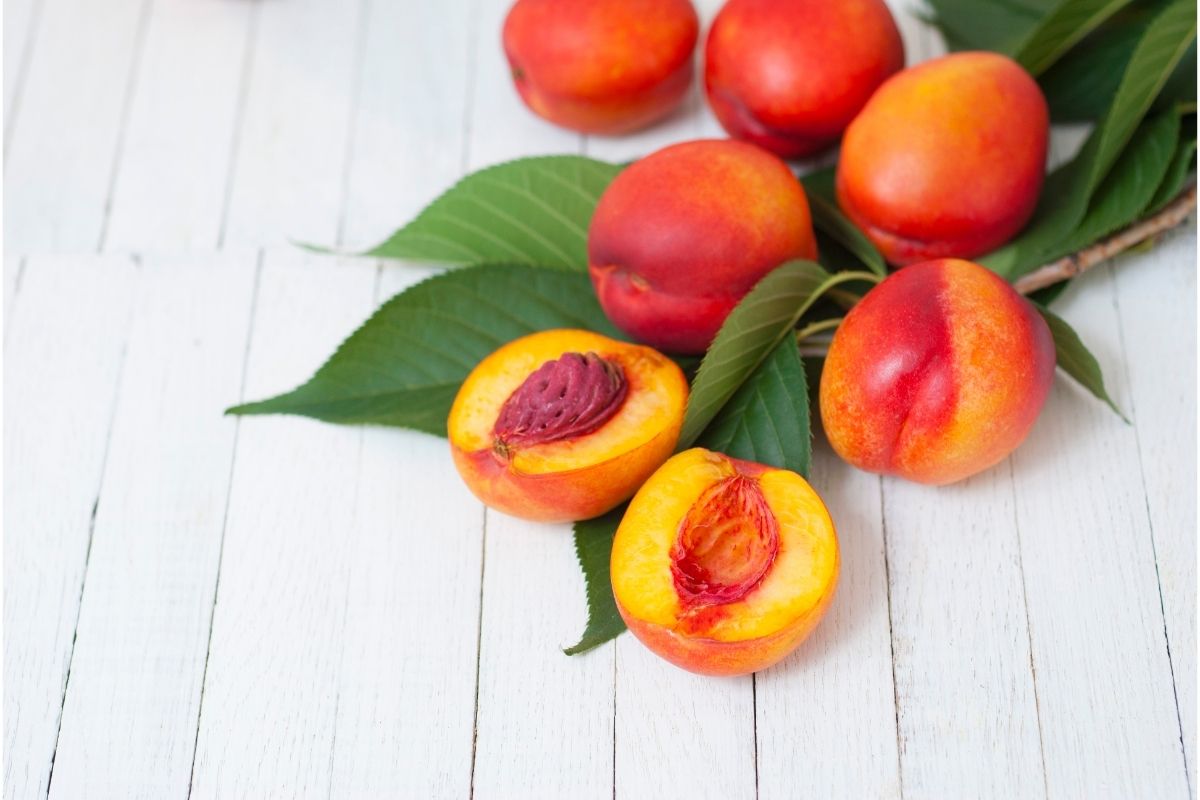
One cup of sliced nectarines will, on average, contain approximately 15 grams of carbohydrates. Out of these 15 grams, however, 2.4 grams will be made up of dietary fiber.
By boosting the intake of fiber in your body, you can help manage a healthy weight and even reduce blood cholesterol levels. As well as this, nectarines are rich in vitamins A and C and potassium.
Summary
Although many low-carb diets advise you to cut out fruit due to the high carbohydrate contents associated with them, it is not the best idea.
Fruit provides a whole host of health-promoting vitamins and nutrients.
Even if you consume some carbohydrates, it will be more beneficial for your health than cutting fruit from your diet completely.
So, if you want to lower your carbohydrates intake, don’t banish fruit from your diet. Just carefully choose which ones are the lowest in carbs and enjoy these every day.







